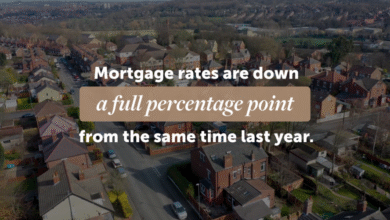Utilizing my extensive knowledge of Hunterdon County, this Market Report explores the current dynamics of our local real estate market. Through my monthly updates, I navigate the economic climate and trends that impact our community’s property landscape. This report goes beyond conventional data, offering hyper-local statistics not readily available elsewhere. By the end of the report, you’ll not only be informed about the “What” in the Hunterdon County market but also gain insights into the “Why.” Armed with this understanding, you’ll be well-equipped to make informed decisions when participating in real estate transactions in 2024.
You can also find a version of the report covering Somerset County here.
138 Under Contract Listings $681K Average List Price 35 Average Days on Market
“Inventory begins to build up primarily in the more expensive price ranges.”
June is predicting a 4% decrease in sales statewide.
Additionally, the robust employment indicators, especially in light of recent interest rate hikes, have raised concerns about the Federal Reserve pausing future rate increases or even contemplating rate cuts. But, based on the June Fed meeting, rate cuts do not seem to be probable in the near future. 📈🏠💰
In a broader context, the real estate market is showing signs of returning to a more typical state. This usually starts at higher price points and moves down from there and from east to west. Fewer offers now exceed the asking price, and bids include contingencies such as mortgage approval, home sale, and inspection. The inventory of newly listed properties has increased significantly compared to previous months, contributing to an overall rise in total inventory. However, strong demand continues to outpace supply, leading to rising prices in our region. Already in higher price brackets, there is pressure on prices as those market segments move toward a balanced or even buyer-oriented market.
For those considering buying or selling, the answer lies within this analysis. Currently, the market strongly favors sellers due to the fast-moving inventory, which helps maintain price stability in our locality. However, there is a gradual shift toward a buyer’s market in the higher price ranges. Over the past years, prices have experienced significant increases—nearly 12% in 2020, 18% in 2021, 9% in 2022, and 11% in 2023. While a more modest 6% growth was anticipated for 2024, homes priced at $1,000K and above are seeing increased inventory, impacting their supply and demand dynamics. Conversely, prices below this threshold continue to rise, although the rate of increase has decelerated. Increases will likely be more moderate in future years but still show positive growth. The fifty-year average price increase remains below 5 percent.
Market Statistics for Hunterdon County:
- Last month, the market saw an increase in new inventory, with 130 new listings, compared to 135 in the previous month. This is also above the 82 new listings seen in the same month in 2023.
- As of the beginning of this month, the available inventory was 268 units, up from 238 units last month. And this is still higher than the 187 units available in the same month last year. A lot of this new inventory is in our higher price points.
- The number of units that went “under contract” last month was 138, down from the previous month’s 179 units and down from the 164 units in the same month last year.
- Over the past month, the average number of days on the market has risen to 35, indicating a slowing buyer demand.
- Currently, the overall month’s supply of inventory stands at just under 1.9 months, indicating it is still a strong seller’s market. This trend holds for properties priced under $1,000K.
Given the current market conditions with an optimal supply and demand curve favoring sellers, waiting until later in 2024 to sell may not be wise. The market is likely approaching its peak, and sustained high price points are unlikely to continue much longer. It’s advisable to take advantage of the current situation and list your property for sale now.
In summary, acting promptly in the current market could be advantageous for sellers.
New Jersey Residential Real Estate Market Forecast
The spring season of 2024 brought about solid listings and sales despite not being as strong as the previous two years, which were above average (called unicorn years). This was attributed to the increased move to the West (urban flight), pent-up demand, challenging mortgage rates, and sellers entering the market as COVID-19 concerns waned.
Although inventory levels still remain low, new listings are selling quickly, resulting in strong sales and prices for sellers. However, the most significant uncertainty in 2024 is finding a more suitable home and an affordable mortgage.
On the buyer side, the recent movements in interest rates offer a disadvantage compared to just a few months ago. Trade-up buyers are experiencing similar effects.
The higher interest rates resulted in many first-time buyers being priced out of the market and most trade-up buyers being reluctant to make a move. The recent jitters in rates offer little optimism in this area. If possible, it is an excellent time to purchase a home as the terms have stabilized due to the lack of competition, and refinancing is always an option as interest rates decrease further in the future.
Hunterdon County Real Estate Market Inventory Breakdown By Price For Last Month:
| June | June | Total | ||
| Hunterdon County | New | Under | Active | Months’ |
| Listings | Contract | Listings | Supply | |
| Condos/Town Houses * | 28 | 24 | 39 | 2 |
| Over 55 Communities * | 2 | 0 | 5 | |
| $000K to $199K | 2 | 1 | 2 | 2 |
| $200K to $299K | 18 | 8 | 23 | 3 |
| $300K to $399K | 8 | 21 | 18 | 1 |
| $400K to $499K | 15 | 24 | 23 | 1 |
| $500K to $599K | 12 | 19 | 29 | 2 |
| $600K to $699K | 18 | 16 | 29 | 2 |
| $700K to $799K | 16 | 15 | 33 | 2 |
| $800K to $899K | 12 | 15 | 22 | 1 |
| $900K to $999K | 10 | 6 | 17 | 3 |
| $1,000K and Up | 19 | 13 | 72 | 6 |
| Totals for June | 130 | 138 | 268 | 2 |
| Average Price | $764,555 | $681,154 | -10.9% | |
| Average DOM | 35 | |||
| * Included in $ breakdowns |
- 39% of sales in houses< $500,000
- 36% of sales in the $500,000 to the $800,000 range
- 25% percent of total sales (or 10 in total) in houses >$800,000
Hunterdon County Real Estate Market Inventory Breakdown By Municipality For Last Month:
| Hunterdon County | Active Listings | Under Contract Last Month | Months’ Supply |
| Alexandria Twp. | 8 | 4 | 2 |
| Bethlehem Twp. | 6 | 6 | 1 |
| Bloomsbury Boro. | 1 | 0 | |
| Califon Boro. | 3 | 1 | 3 |
| Clinton Town | 3 | 1 | 3 |
| Clinton Twp. | 16 | 13 | 1 |
| Delaware Twp. | 13 | 4 | 3 |
| East Amwell Twp. | 15 | 3 | 5 |
| Flemington Boro. | 4 | 2 | 2 |
| Franklin Twp. | 6 | 1 | 6 |
| Frenchtown Boro. | 1 | 4 | 0 |
| Glen Gardner Boro. | 5 | 5 | 1 |
| Hampton Boro | 2 | 2 | 1 |
| High Bridge Boro. | 5 | 4 | 1 |
| Holland twp. | 11 | 6 | 2 |
| Kingwood Twp. | 12 | 2 | 6 |
| Lambertville City | 14 | 4 | 4 |
| Lebanon Boro. | 0 | 1 | 0 |
| Lebanon Twp. | 14 | 10 | 1 |
| Milford Boro. | 4 | 3 | 1 |
| RaritanTwp. | 44 | 25 | 2 |
| Readington Twp. | 39 | 16 | 2 |
| Stockton Boro. | 3 | 1 | 3 |
| Tewksbury Twp. | 15 | 9 | 2 |
| Union Twp. | 19 | 6 | 3 |
| West Amwell Twp. | 5 | 5 | 1 |
| Totals | 268 | 138 | 2 |
One area had no sales last month:
Eight areas reported one or two sales each last month:
- Califon
- Clinton (town)
- E Amwell
- Flemington
- Hampton
- Kingwood
- Lebanon Boro
- Stockton
Hotspots:
- Clinton/Clinton Twp. – 14 Sales
- Raritan – 25 Sales
- Readington -16 Sales
- Tewksbury- 9 Sales
In the past month, approximately 46% of sales were concentrated in the hotspot areas. Here’s a breakdown of the average prices:
- New Listings Entering the Market: The average list price for these new listings was $764,555.
- Units Going Under Contract: The average list price for units that went under contract was $681,154 vs.$454,359 in June of 2020, which is a 50% increase.
This represents an 11% difference between the average prices of new listings and units under contract.”
In summary, understanding these price dynamics can provide valuable insights for buyers and sellers in the real estate market.
Note:
If you aim to achieve a competitive price for your property based on its location and unique features, feel free to contact me at (908) 304-4660. You’ll gain a distinct advantage in the market by leveraging Coldwell Banker’s cutting-edge big data technology and Artificial Intelligence capabilities. I can provide insights into your area’s latest age and earnings breakdown, including where people are moving from. Additionally, I’ll guide you on directly targeting specific demographics in your marketing efforts. This strategic approach will help maximize your selling price while minimizing your property’s time on the market. Accurately priced and well-marketed homes tend to sell faster, especially with the assistance of a seasoned real estate industry veteran and a local area expert.”
Feel free to connect, and let’s work together to achieve your real estate goals!
“Why” is it happening…
New Jersey’s Economic Drivers:
New Jersey Home Sales and Inventory levels:
Contrary to what you see on the news, the Hunterdon and Somerset county markets remain strong. While the network news is correct for some areas in the country (mostly those with heavy new development sales), my report focuses only on our two counties in NJ which consists primarily of resales. Our only new construction is primarily on the high end of the market.
- YT,D the pace of sales across NJ declined by 3% through June.
- Locally, we saw a slight decrease in sales in June in both Hunterdon and Somerset counties Somerset.
- There are early signs of some pullback in pricing at the higher price tiers, but the lower tiers are still seeing price increases, just not as aggressive as in the past.
- First-time buyers are cooling down considerably due to higher pricing (price resistance), inventory shortages, and higher interest rates. Their purchasing power has decreased for these reasons, and many have been priced out of the market for now..
- Potential sellers find it challenging to locate suitable housing in the current market and are hesitant to list until they do. They are also dismayed by higher interest rates than they currently have in place on their current homes and, for the most part, are not willing to make a move unless they have an urgent issue, such as a life event or job transfer. Their purchasing power is diminished by about the same amount, but it is offset by their equity increases.
- Current mortgages show that nearly 70% of all mortgages are under 4%, and 90% are under 5%.
- The current month’s supply of inventory in Hunterdon County remains just under two months, and in Somerset County, it is around 1.3 months due to the rapid sales of new listings (which is called velocity) as the market remains active.
- Hunterdon and Somerset County have considerably less inventory than a year ago. The unsold inventory in New Jersey has steadily decreased since reaching a peak of over 20,000, and it is down to about 14,300 today.
- Inventory reductions have only occurred in the under $400,000 market, experiencing 4% fewer homes, with the $400K to $600K price tier seeing an increase of 17%. The $600K to $1,000K price tier increased by 24%.
- New housing development has not kept up with population growth and is now focused on the rental market.
Interest Rates:
- Interest rates are now hovering just over 7%. In late June they briefly dipped below 7%
- It was anticipated that rates would drop as inflation improves.
- The Fed announced “Fed holds interest rates at 23-year high as inflation continues to push back the timing of a rate cut” at their latest session.
- Many buyers are considering attractive ARM rates and creative other buy-down plans as alternatives.
- Based on the current rates, first-time buyer mortgage applications have dropped, but restructuring debt and paying down high-interest items remain active.
- The Fed’s efforts to slow things down have resulted in the above.
National Job Front:
- Total nonfarm payroll employment increased by 272,000 in May, and unemployment rose to 4.0 percent, the U.S. Bureau of Labor Statistics reported. Employment continued growing in government, health care, social assistance, and construction.
- At the same time, job gains for February and March were revised down by a combined 22,000 jobs in the April report and April by 10,000 in the May report. This gets little exposure on the network news channels but is not a strong indicator of the market.
- A large portion of the new jobs was part-time, indicating that people are finding “side hustles” to help account for inflation.
- It’s important to note that this number includes natural job growth of about 175K per month.
- The analysts also state that many new jobs were lost as small businesses failed and those people reentered the labor force.
- The labor force participation rate dropped to 62.2 percent. This rate is calculated by dividing the sum of all workers employed or actively looking for a job by the working-age population. It also fluctuates due to people taking a second job to meet ends.
- Many people are resigning to pursue new career paths due to perceived health risks, the desire for more remote work, and a better work-life balance. New technology-based jobs are affecting this trend.
- For those under $50K, there is even some incentive not to work and collect benefits, contributing to the current unemployment rate.
- The lower end of the job market has benefited the most from this trend, with higher starting pay rates competing for the lack of workforce. Jobs starting in the mid to upper $20 per hour are already being offered.
New Jersey Job Front:
- State wide we saw a decrease in new jobs of 23% in 2023.
- The unemployment rate in NJ for April dropped to 4.6%, still quite a bit above the national rate.
- NJ has gained about 27,400 YTD through April of 2024 as compared to 36.800 the prior year.
- Job losses are still prevalent in industries such as construction, food services, and accommodations, with retail and wholesale trade also experiencing a downturn in some states. Even health care, social assistance, and manufacturing are shedding workers.
- NJ was hit harder than most states in the early months of the pandemic, but it has made a remarkable recovery since then.
- It should be noted that the numbers of jobs in New Jersey run a month behind the national numbers.
Rental Market Trends:
- Rental prices in New Jersey have continued to increase in 2024, with a year-over-year average of over 3%, and are currently averaging just over $2,200 per unit. However, recent data shows a slight decrease in these prices.
- The vacancy rate in central New Jersey is currently at 4.0%, indicating a limited rental supply and leading to a rise in rental prices.
- The rental market typically includes low-end buyers who opt to rent due to a shortage of available inventory. However, the recent constraints in the mortgage market have also contributed to the increase in this sector.
- NJ was on track to add 30K new apartment units in 2023.
New Jersey Foreclosures:
- The delinquency rate (more than 90 days past due) in NJ has decreased, which is a positive development.
- NJ’s current foreclosure rate remains low at 1.1%.
- Nationally, $11 trillion in equity is needed to protect homeowners during a potential recession.
- The average FICO score of mortgage holders is over 750, higher than during the 2008 financial crisis.
- A slowdown and recession could still cause job losses and put mortgages at risk.
- Only 18% of mortgages in forbearance are at risk due to unresolved forbearance issues.
- A housing bust is not predicted to occur since there is a lot of positive equity in houses, thanks to recent appreciations.
Real Estate Market Recap
Forecast:
- The COVID-19 pandemic seems to be all but over.
- Supply chain shortages have affected inflation, and concerns remain that undersupply could cause further price increases.
- The consumer price index, which rose 3.3% in May, continues to cause havoc on auto, finished goods, and energy pricing and is the enemy of long-term interest rates.
- Mortgage rates had risen a bit but are now back to just in the mow 7% range.
- The local inventory begins to accumulate primarily in the more expensive price ranges, and the housing affordability index has increased slightly (based on wages, rates, and home prices). As a result, mortgage payments now have an all-time high gross percentage (which slows spending in other sectors).
- Due to COVID-19 and recent unrest in NYC, interest in living in more suburban counties such as Hunterdon and Somerset has all but disappeared.
- Many people have found that working from home (in total or part) is a reality, and as opportunities start to open up again, we will see less commuting and traveling in general.
- Retailing and using vacant industrial space will transform to meet the new altered demands and lifestyles.
- The local market will have to adapt to the new suburban renaissance of where people will be working and what they need to adapt.
- The lingering question has been, “Can we keep this momentum up with low to slightly rising inventory?” as predictions for slower sales and price increases in 2024 have already been made. Price increases were about an 11% increase in 2023 in NJ. The new year sees more normalized increases (based on your price points) of 5%+ (but that is what we said this time last year as well).
- Days on the market in our area have dropped, showing buyers are becoming seasonally less active.
- However, change will result in a trend towards a more normalized environment if inventory continues to come onto the market and the first-time buyer fatigue that we have seen continues.
- Younger (millennial) buyers are coming of age in the pipeline for at least the next four to five years, which will continue to put more demand on the first-time buyer market, usually under $400K.
- Housing markets are adding much of the new inventory at higher price points, which results in the normalization of those results. Change usually happens from the top down and from east to west.
- In a nutshell, 2024 will probably look a lot like 2023 unless we see major shifts in the factors affecting inventory and rates.
This is substantial information, and the situation is evolving daily. Nevertheless, it appears to be moving in a positive direction for now. If you require further clarification or have any concerns about how this could impact your circumstances, please don’t hesitate to contact me at (908) 304-4660. I’m always available to chat and assist you in gaining a better understanding.
Note: Presented as a public service by Joe Peters of Coldwell Banker Residential Brokerage. Although reasonable care has been taken to provide this information, it is advised that you seek the guidance of a professional sales agent and avoid making any decisions solely based on my views, gathered trends, and statistics. I am not responsible for any consequences that may result from using this data.
If you have any questions or would just like to talk out your situation, please call 908-304-4660
Home Prices Forecast To Climb over the Next 5 Years [INFOGRAPHIC]
You can ask me a question or request a monthly newsletter copy here.
Source link




